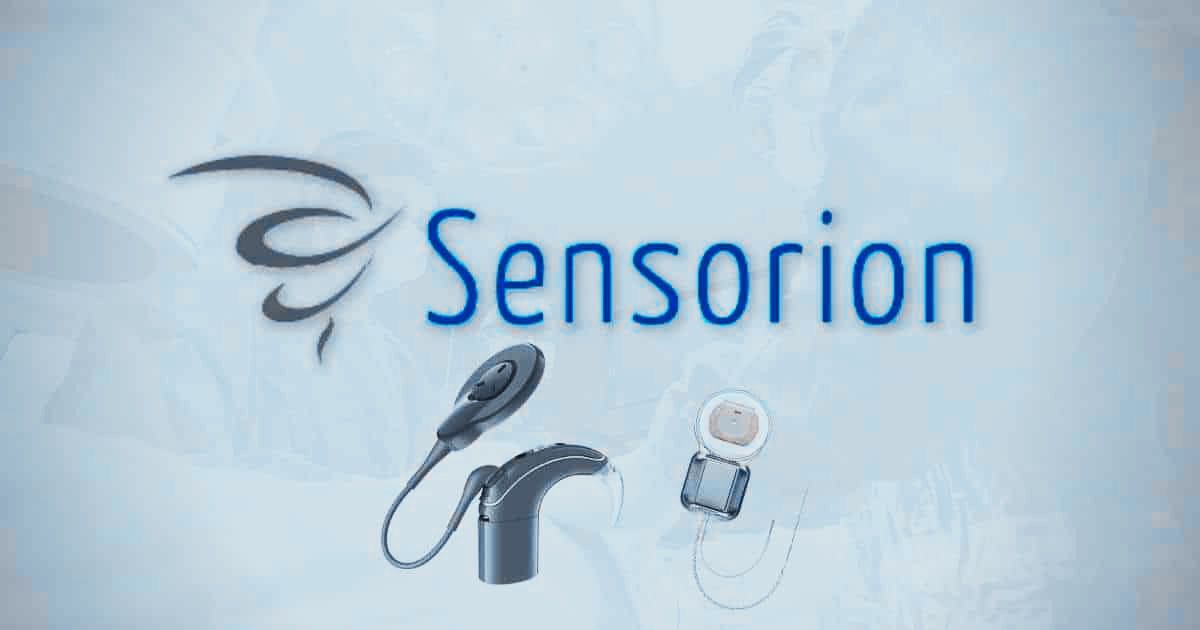MONTEPELLIER, FRANCE – Sensorion, a clinical-stage biotechnology company focused on developing novel therapies for hearing loss, has announced new positive data from its SENS-401 Phase 2a clinical trial aimed at preserving residual hearing in adult patients following cochlear implantation.
Presented at the 17th International Conference on Cochlear Implants and Other Implantable Technologies (CI2024) in Vancouver, Canada, by Professor Stephen O’Leary, M.D., Ph.D., the results highlighted significant secondary efficacy endpoints.
The study focused on changes in hearing thresholds from baseline to the end of the treatment period in the implanted ear at several frequencies.
Preserving Hearing in Cochlear Implantation
The trial required participants to have a pure tone audiometry (PTA) threshold of 80 dB or better at 500 Hz. Results showed that SENS-401 significantly reduced hearing loss post-cochlear implantation. Six weeks after implantation, mean hearing loss induced by the surgery at 500 Hz was 19 dB in the SENS-401 treated group compared to 32 dB in the control group.
Similar differences were observed at 250, 500, and 750 Hz frequencies, with a mean hearing loss of 16 dB in the treated group versus 31 dB in the control group. These results remained clinically meaningful up to 14 weeks post-implantation, confirming SENS-401’s role in preserving residual hearing.
“I am excited to share these new positive findings from our Phase 2a clinical trial on SENS-401, which demonstrate the clinically meaningful effect of our small molecule in preserving the residual hearing of patients undergoing cochlear implantation. Reaching this key secondary endpoint strongly supports SENS-401’s ambition to potentially improve the quality of hearing of patients undergoing such surgery. We plan to communicate the full final data later in Q3 2024.”
–Nawal Ouzren, CEO of Sensorion
Dr. Géraldine Honnet, Chief Medical Officer of Sensorion, added, “The new results obtained for SENS-401 show the efficacy of the drug candidate in preserving residual hearing. I am delighted to report the difference in hearing loss between the treated group and the control group and the maintenance of this effect up to 14 weeks post-implantation with 25 dB loss at 500 Hz in the treated group compared to 35 dB loss in the control group. I would like to extend my gratitude to every patient, partner, and investigator who participated in this study.”
SENS-401 (Arazasetron), Sensorion’s lead drug candidate, is an orally available small molecule designed to protect and preserve inner ear tissue from damage that leads to hearing impairment. The company is also developing SENS-401 in a Phase 2 trial for the prevention of Cisplatin-Induced Ototoxicity and has been granted Orphan Drug Designation by the EMA in Europe for sudden sensorineural hearing loss and by the FDA in the U.S. for preventing platinum-induced ototoxicity in pediatric populations.
About SENS-401
SENS-401 (Arazasetron) is Sensorion’s lead drug candidate, designed to protect and preserve inner ear tissue from damage leading to progressive or sequelae hearing impairment. The Phase 2a trial evaluates SENS-401’s potential to prevent residual hearing loss in patients undergoing cochlear implantation, while another Phase 2 trial assesses its efficacy in preventing Cisplatin Induced Ototoxicity. SENS-401 has received Orphan Drug Designation from the EMA in Europe for treating sudden sensorineural hearing loss and from the FDA in the U.S. for preventing platinum-induced ototoxicity in pediatric populations.
About Sensorion
Sensorion is a pioneering clinical-stage biotech company, which specializes in the development of novel therapies to restore, treat and prevent hearing loss disorders, a significant global unmet medical need. Sensorion has built a unique R&D technology platform to expand its understanding of the pathophysiology and etiology of inner ear related diseases, enabling it to select the best targets and mechanisms of action for drug candidates.
It has two gene therapy programs aimed at correcting hereditary monogenic forms of deafness, developed in the framework of its broad strategic collaboration focused on the genetics of hearing with the Institut Pasteur. OTOF-GT targets deafness caused by mutations of the gene encoding for otoferlin and GJB2-GT targets hearing loss related to mutations in GJB2 gene to potentially address important hearing loss segments in adults and children. The Company is also working on the identification of biomarkers to improve diagnosis of these underserved illnesses.
Sensorion’s portfolio also comprises clinical-stage small molecule programs for the treatment and prevention of hearing loss disorders.
Sensorion’s clinical-stage portfolio includes one Phase 2 product: SENS-401 (Arazasetron) progressing in a planned Phase 2 proof of concept clinical study of SENS-401 in Cisplatin-Induced Ototoxicity (CIO) and, with partner Cochlear Limited, in a study of SENS-401 in patients scheduled for cochlear implantation. A Phase 2 study of SENS-401 was also completed in Sudden Sensorineural Hearing Loss (SSNHL) in January 2022.
Source: Sensorion






